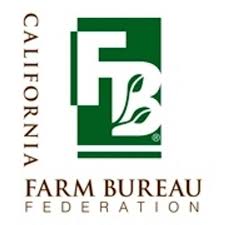 the state" procedures and a new wetland definition by the end of the year. Farm and industry groups say the action would create new regulatory burdens.
the state" procedures and a new wetland definition by the end of the year. Farm and industry groups say the action would create new regulatory burdens.The State Water Resources Control Board took public comments at a meeting in Sacramento last week and has extended its deadline to receive written comments until Sept. 18.
Water board officials said the proposed procedures are meant to strengthen oversight for waters that are no longer protected under the federal Clean Water Act due to U.S. Supreme Court decisions, and that regional water boards have inconsistently enforced existing state requirements for discharges of dredged or fill material.
The proposed procedures would require permits for discharges of dredged or fill material to drainages, streams, ponds, lakes and other waters of the state, and would require permits for discharges to canals, constructed waterways and conveyances, historical floodplains, uplands with connections to waters and nonvegetated areas.
Farm groups say the proposal creates a mandatory permitting program for waters of the state, resulting in permit requirements for more proposed projects, operations and maintenance activities. Mitigation requirements for those projects and activities likely would increase. Another concern is that exemptions for some agricultural activities would be limited.
The board proposal also includes a statewide definition of "wetland."
Ana Maria Saenz, an environmental scientist for the board, said that under normal circumstances, if an area has evidence of hydrology, hydric soils and vegetation, it would be considered a wetland. However, under the draft proposal, a technical team of wetland scientists "recommended a definition that vegetation need not be present to be considered a wetland."
Speaking for a business coalition of several hundred agricultural, industry and business groups that opposes the draft proposal, San Francisco-based attorney Keith Garner said the state definition would differ from that used by the U.S. Army Corps of Engineers.
"Both (definitions) use three parameter tests: hydrology, soils and vegetation. But there is a key, important difference: (The state definition) writes out the vegetation parameter and includes certain features that in the Corps' view may not be wetlands," Garner said. "We urge the board and staff to simply adopt a definition that is consistent and is identical to the Corps' definition."
California Farm Bureau Federation Associate Counsel Kari Fisher said that under the state wetland definition, drainage ditches used by farmers and by water districts and others for moving water around the state could be affected.
In the draft proposal, Fisher said, water board staff recommends a mandatory permitting program that would apply to all waters of the state and impose additional regulatory hurdles and permit requirements on a wide range of industries and activities.
"The procedures unnecessarily duplicate the federal CWA program while raising the risk that the state water board findings and determinations will vary from, or even conflict with, findings and determinations made by the U.S. Army Corps of Engineers and/or California Department of Fish and Wildlife," Fisher said.
Speaking in favor of the proposal, Lisa Belenky, senior attorney for the Center for Biological Diversity, said the state needs to act, adding, "Adoption of this policy without further delay is critical for compliance with the no-net-loss mandate and protecting our remaining wetlands, particularly in light of anticipated changes at the federal level to Clean Water Act jurisdiction that could be really harmful for California resources."
Michael Miiller, director of government relations for the California Association of Winegrape Growers, said the state proposal "seems to indicate that any wetland that may ever have been covered under WOTUS is included."
San Joaquin County winegrape grower Brad Goehring, who viewed the meeting via webcast, noted the state water board has said it wants to streamline permitting processes. But Goehring said the proposal would instead further complicate that process.
"You are going to get a permit from the Army Corps, then by definition when you go to the state, you need an additional permit because all of these things they left out were not covered," he said.
Written comments on the proposal may be submitted via the Farm Team page on the CFBF website at www.cfbf.com/farmteam. Comments may also be submitted directly via commentletters@waterboards.ca.gov with the subject line "Statewide Dredged or Fill Procedures," or sent to Jeanine Townsend, State Water Resources Control Board, 1001 I St., Sacramento, CA 95814.
(Christine Souza is an assistant editor of Ag Alert. She may be contacted at csouza@cfbf.com.)
Source: Reprinted with permission: California Farm Bureau Federation








